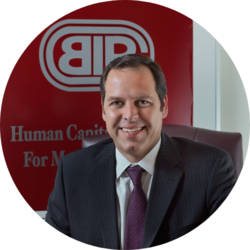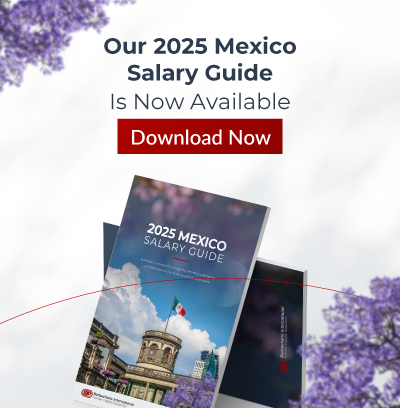
As the year winds down, leaders often spend time celebrating wins and reflecting on what didn’t go as planned. End-of-year reflections revolve around learning from the past and setting the stage for what comes next. Here are some themes to guide your reflections and strategies.
Embracing Cognitive Agility: The Mindset Shift Leaders Need to Thrive
Business moves fast, making it critical for leaders to stay mentally flexible—ready to shift between ideas and adapt to new situations. This year, leaders who stayed open and adaptable were better equipped to handle economic ups and downs, new technologies, and changing workplace expectations.
- What worked: Leaders like Satya Nadella, who embraced continuous learning and encouraged his team to adopt a growth mindset, stood out. Investing in professional development helped organizations stay resilient and innovative amid uncertainty.
- What didn’t: Sticking to rigid strategies and outdated operational models left some companies struggling to keep up. Resistance to change—whether cultural or structural—often created roadblocks.
- What’s next: Encourage a culture of curiosity and a willingness to explore new ideas. Start with small, low-risk projects that help teams build their skills and confidence to set the stage for larger future changes.
Leveraging AI Responsibly: Ethics and Innovation in the Age of Automation
Artificial intelligence continued to transform industries in 2024, with new possibilities for efficiency and creativity. However, it also raised questions about ethics and the balance between automation and human expertise.
- What worked: Companies like Schneider Electric that used AI to supplement human work rather than replace it grew in both efficiency and trust. Transparent communication about AI’s role in decision-making reassured employees and customers.
- What didn’t: Over-reliance on AI without proper oversight eroded trust. In some cases, ethical lapses—like biased algorithms—damaged reputations.
- What’s next: Develop clear ethical guidelines for AI implementation. Invest in workforce training to make sure employees understand and can complement AI-driven processes.
From Profit to Purpose: Redefining Success in 2025
Success today goes beyond making a profit. Companies that prioritized broader goals like sustainability, fairness, and community involvement, earned their customers’ and employees’ trust and loyalty.
- What worked: Purpose-driven initiatives helped organizations build deeper connections with stakeholders. Companies that incorporated purpose into their operations—not just marketing—saw lasting results.
- What didn’t: Superficial efforts to appear socially responsible backfired, leading to skepticism and damaged credibility.
- What’s next: Make purpose a natural part of how you operate. Be open about your goals and follow through with actions that show you mean it.
The Micro-Transformation Mindset: Small Changes, Big Impact
Big, sweeping changes can feel overwhelming, but small, incremental improvements often lead to true progress. This year, leaders who embraced micro-transformations made strides without major disruptions.
- What worked: Simple adjustments—like refining workflows or improving communication processes—resulted in tangible improvements. Leaders who included their teams in identifying and implementing changes saw better engagement and creativity.
- What didn’t: Ambitious overhauls without sufficient planning or buy-in often failed, as in this case. Large-scale initiatives can be disruptive if they’re not clearly communicated or supported.
- What’s next: Break larger goals into smaller, actionable steps. Seek stakeholder support at every stage in the venture.
Rehumanizing Work: Putting Well-Being and Purpose at the Forefront
This year emphasized how important it is to genuinely support employees’ well-being—not as a passing trend, but as a lasting part of workplace culture. Leaders who focused on authentic care and building real connections saw improvements in both productivity and morale.
- What worked: Flexible work policies, mental health resources, and authentic recognition programs kept teams engaged. Leaders who modeled empathy and vulnerability built stronger relationships (The Times).
- What didn’t: Ignoring employee feedback or reverting to outdated management styles caused disengagement. A lack of meaningful connection in hybrid or remote settings weakened team cohesion (HR Magazine).
- What’s next: Focus on building a culture where employees feel valued and supported. Regularly seek feedback, recognize contributions, and provide resources that promote complete well-being.
Scenario Planning and Futureproofing: Preparing for the “What Ifs”
Uncertainty will always be part of leadership, but being unprepared doesn’t have to be. Scenario planning—exploring potential futures and creating strategies for each—proved invaluable for many organizations this year.
- What worked: Teams that used scenario planning were better prepared to handle disruptions, like supply chain issues, market swings, or new tech challenges. By regularly updating their backup plans, they stayed ready for whatever came their way (Reuters).
- What didn’t: Rigid plans that failed to anticipate unexpected variables left some organizations scrambling to react. A lack of preparation made challenges harder to overcome (The Strategy Institute).
- What’s next: Make scenario planning a regular part of your leadership approach. Bring together teams from different departments to develop flexible plans that can adapt to various situations.
As the year wraps up, take time to reflect on what worked, what didn’t, and what you’ve learned along the way. True leadership means adapting, learning, and moving forward with intention. While the road ahead might be uncertain, thoughtful preparation and bold actions can turn possibilities into successes.

By Fernando Ortiz-Barbachano
President & CEO of Barbachano International
Barbachano International (BIP) is the premier executive search and leadership advisory firm in the Americas with a focus on diversity & multicultural target markets. Since 1992, BIP and its affiliates have impacted the profitability of over 50% of Fortune 500 Companies. BIP has been recognized by Forbes as Americas’ Best Executive Search Firms and currently ranks #10 and #3 on the West Coast.

